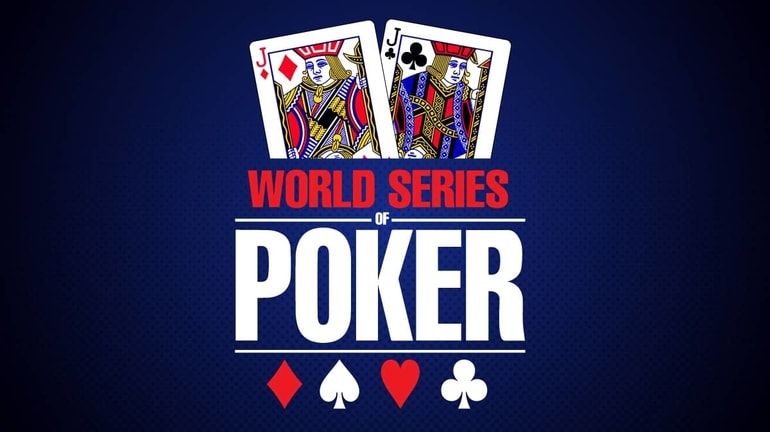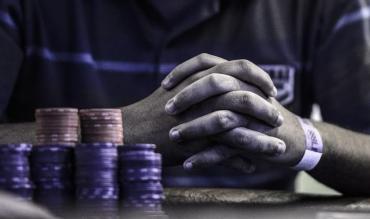Pocket Jacks. They’re sometimes called fishhooks, Brothers, and jaybirds. Technically they’re the fourth-best starting hand in no-limit Texas Holdem – or fifth if you consider ace-king more valuable.
But it is arguably the hand that’s caused poker players the most trouble over time.
The problem is that, despite being a strong starting hand, frequently you have to take it into battle against other strong hands. Pocket aces, kings and queens all have it dominated, while against hands like ace-king (AKA Big Slick) and ace-queen – both hands players tend to play – it’s a coin flip.
In the instances where your Pocket Jacks have a smaller pair dominated, you always have to worry about those pesky, sneaky sets.
There’s no doubt playing Pocket Jacks can be tricky, which is why we at 888poker have decided to take a deep dive into the hand.
We’ll not only offer you some strategies to consider when playing Pocket Jacks but also take a look at some of the more famous pocket-jack hands in poker history.
Table of Contents
How to Play Pocket Jacks Preflop
Unfortunately, there’s no easy explanation on how to play Pocket Jacks preflop. It’s subjective and depends on a lot of different factors including table position, chip stacks, the blinds, and, of course, how you assess your opponents.
Know this, though, there’s a roughly 12 per cent chance another player will be dealt a bigger pocket pair against you. The maths also dictates that Pocket Jacks will lose approximately 44 per cent of pots. That’s a lot, but it also means you’ll win 56 per cent of the time. That 12 per cent of equity is where a lot of poker players make their bread and butter.
Here’s a look at the equity of Pocket Jacks – the statistics on how often you’ll win – depending on the number of players at the table:
- 10 Handed = 19%
- 9 Handed = 22%
- 8 Handed = 25%
- 7 Handed = 29%
- 6 Handed = 34%
- 5 Handed = 40%
- 4 Handed = 49%
- 3 Handed = 61%
- 2 Hand = 78%
As for different preflop strategies, let’s start by assuming you’re in a poker tournament and short stacked, say 15 big blinds or under. The best option is probably just to get it in, even if there’s a raise in front of you. Jacks are too strong to fold, and in the instance, you decide to put in a raise, you’d better be prepared to call off the rest if another player three-bets.
By shoving you at least take advantage of any fold equity, you may have.
If you’re sitting on a stack of 15-25 big blinds, shoving Jacks is a little riskier. Do you really want to put a decent stack on the line when chances are, you’re only getting called by a hand that either dominates you or is in a race situation?
Instead, consider opening with a standard raise, or even better three-bet all in if a player opens in front of you.
Probably the time most players struggle with how to play Pocket Jacks is when they’re deep stacked. If that’s the case, you usually want to actively avoid getting your chips in preflop. That’s because your opponents aren’t likely to get theirs in without an even bigger hand.
So, what’s the best way to play them when deep stacked? Many players like to contend for smaller pots that they can control. That means you want to have a good idea of how to play Pocket Jacks postflop.
How to Play Pocket Jacks Postflop
Most of the time you’ll want to open-raise Pocket Jacks preflop. If there’s a raise in front of you, three-betting is a solid option. Depending on the situation – for instance, there’s been a raise from an aggressive player and another aggressive player just calls. Limping with Jacks is also an option.
The key is reading and adapting to board texture postflop. For example, in the situation described above let’s assume the flop comes down something like A♥K♦3♣. The original raiser continues with a bet and the other aggressive player calls. At this point, it’s easy to ditch your Pocket Jacks as it’s likely one or both of them have either an ace or king.
On the flip side, though, if the flop comes low like 3♠5♦9♣ and the same action takes place, what do you do now? Does either of your opponents have an overpair? Did they flop a set? As you can see, holding Jacks in a spot like this gets much trickier. Most players will try to play pot control and get to a showdown as cheap as possible, but if action explodes and it becomes too pricey, you’d best fold and move on to the next hand.
Pocket Jacks are frustrating because they often result in such high-variance and perplexing spots.
Here are some examples throughout poker history.
Cary Katz Put to the Test with Pocket Jacks
Back in Season 3 of the World Poker Tour’s Alpha8 series, Nick Petrangelo raised to 20,000 holding the A♣9♣ and Cary Katz looked down at the J♣J♠. He three-bet to 60,000, and Paul Volpe picked up the A♠K♣ in the blinds and moved all-in for 270,000. Petrangelo quickly folded, and Katz was in a classic Pocket Jacks’ predicament.
Did his opponent have a bigger pocket pair? Maybe two overs to make it a race situation? Would he do it with a small pocket pair like tens, nines or eights? There are so many unanswered questions, and that’s what makes playing Pocket Jacks against a shove so tricky.
“Alright, you can take it,” Katz said before releasing his hand. The lesson here is that when you three-bet Jacks and are faced with an all-in four-bet, chances are you’re either crushed or flipping.
Finding the fold button is never a bad idea.
Devilfish Gets Fish-hooked
In Season 10 of the EPT, the flop read 5♣3♦K♦ when a player bet 30,000 and the late David “Devilfish” Ulliott, who held the J♠J♣, raised to 80,000. His opponent responded by three-betting all-in for around 250,000 and that sent the Poker Hall of Famer into the tank.
Again, here’s another hand where even an experienced player is put in a thorny spot holding Jacks. Ulliott had around 200,000 behind and thought long and hard before folding his hand face up. His opponent never showed, but it’s safe to assume Devilfish was either crushed or up against a flush draw.
Either way, his raise on the flop elicited the information he needed to fold.
Vanessa Selbst Seizes the Chip Lead Holding Pocket Jacks
At the Season 12 World Poker Tour Borgata final table, a big hand developed involving Vanessa Selbst. With the blinds at 100K/200K, Selbst picked up the J♥J♦ and raised to 400,000 from the button. Jeremy Kottler called from the small blind with the K♥Q♠, and Cong Pham put in the additional 200,000 from the big with the 6♦4♠.
Two checks on a 9♥2♥5♠ flop saw Selbst continue for 650,000 and Kottler called behind. Pham, who had a gutshot straight draw, also called to make it three-way action to the A♥ turn. All three players checked, and the 5♣ paired the board on the river.
Again, all three players checked, and Selbst won the hand with Jacks up. That particular hand propelled her into the chip lead, and she went on to finish in second place to Anthony Zinno for $492,569.
Jacks worked out for Selbst in that crucial hand, but it wasn’t easy. She was fortunate enough to dodge some draws and get to the showdown without committing more chips after the flop.
Brian “Sailor” Roberts Wins 1975 WSOP Holding Pocket Jacks

In the history of the World Series of Poker (WSOP), which this summer celebrates its 50th anniversary, only one player has captured the prestigious title with Pocket Jacks as the winning hand.
Way back in 1975, 21 players ponied up the $10,000 buy-in including Brain “Sailor” Roberts. That meant a $210,000 prize was up top in the winner-take-all tournament. Sailor ended up making it to heads-up play with his good friend and roommate, Bob Hooks.
“Me and Sailor tried to chop it, but Benny Binion stopped that because he thought it’d make [the tournament] less authentic,” the late Hooks, who passed away in 2016, previously told me. He also claimed that neither player wanted to win that much money outright. “You talk about tight; you can’t get any tighter than we were. Didn’t either one of us want to win it. He had his reasons, and the IRS was after me all the time.”
Unbeknownst to officials at the time, Hooks and Sailor struck a deal under the table to split it down the middle. They then played it out to maintain the ruse.
In the final hand of the tournament, Sailor held the J♠J♥ and Hooks the J♣9♣ when the chips went in.
“We gave them a good show,” Hooks said of the hand. “The hand I got broke on, it was a legitimate hand. The hand he beat me on was all legit. It looked so good. It turned out you couldn’t have put a cold deck in any better.”
Roberts, who passed away in 1995, has gone down in poker history as the only player to have won the WSOP Main Event holding Pocket Jacks.


